Highlights
- 2018 batch IFS officer Harikrishnan PJ’s UPSC journey is as interesting as it is inspiring
- His work as an IFS has changed the lives of farmers in Darjeeling
- He suggests that if you love forestry, then you should choose IFS, not take it as optional
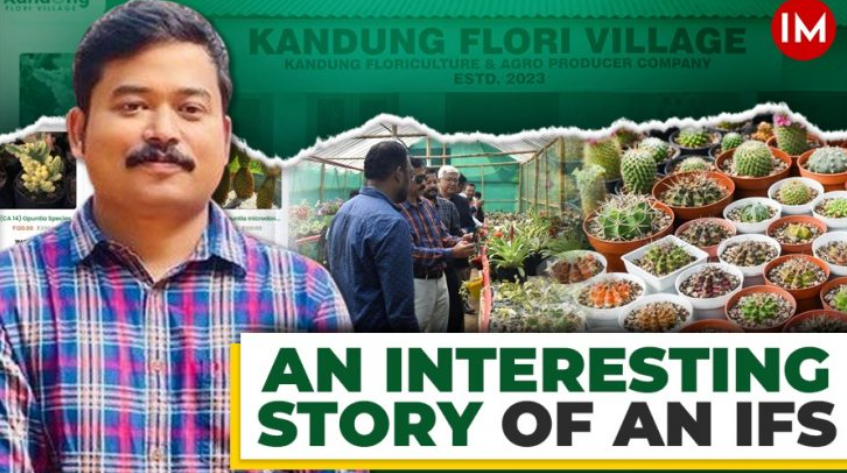
Have you ever encountered a UPSC aspirant who not only cleared the UPSC but also joined the state civil service? And then, after working for the state government for roughly a year and a half, re-joined UPSC? This is a fascinating story about Dr. Harikrishnan PJ, a 2018 batch Indian Forest Service officer from the West Bengal cadre, who cleared the UPSC IFS-2016 and joined Kerala PSC. But why?
Not only this, IFS Harikrishnan loved forests and agriculture so much that even after topping the Kerala PSC, he took the post of an Agriculture Officer. More than this, during his posting as an IFS officer in Darjeeling, he showed a new path to the farmers of the forest village and changed their lives forever.
Indian Masterminds interacted with Harikrishnan PJ, currently serving as DFO, Buxa Tiger Reserve, to learn more about his initiative and his UPSC journey.
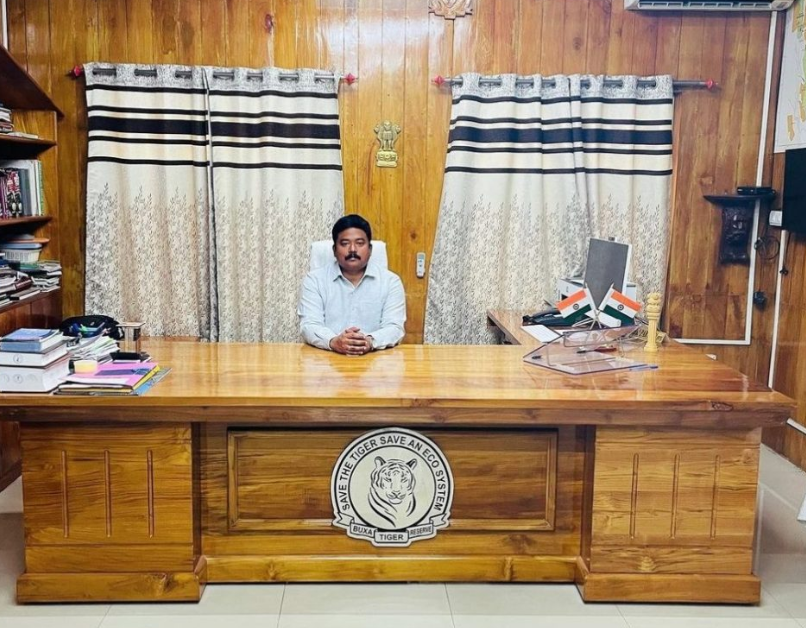
JOURNEY SO FAR
He started his UPSC preparation while doing his PhD in 2013–24. He made his first attempt in 2015 but could not crack it. In his second attempt at UPSC IFS-2016, he cracked the exam and became an IFS officer.
However, as they say, life does not always go as planned. After passing the exam, he encountered major problems in his family as his father’s health deteriorated. As a result, he did not join IFS services in 2017 and instead signed a one-year extension contract.
Meanwhile, he prepared and topped the State Civil Services, Kerala PSC, and got posted in the Kerala Agriculture Department as an agriculture officer. Interestingly, he cracked the Kerala PSC after the UPSC and achieved rank 1. He also cracked the ‘Kerala Land Use Board’ exam and topped there too. He worked in this department for half a year.
He said, “Due to my father’s heart problem, I could not move outside of Kerala. That’s why I took an extension for IFS. It also reduced my seniority for a year. In those days, I cracked Kerala PSC and joined the agriculture department, as I always had much interaction in agri-related issues.”
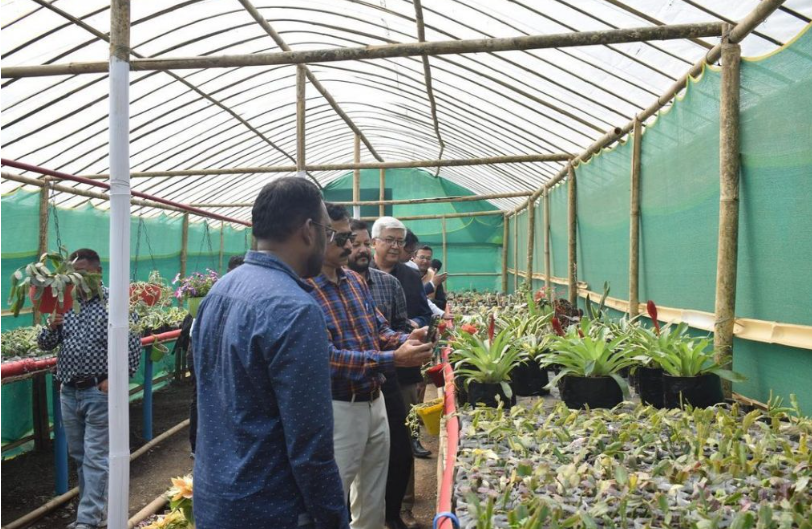
From Kerala to Bengal, wherever Mr. Harikrishnan got posted, he always tried to empower the farmers and give them long-term sustainability. During his term as DFO in Darjeeling, he created a Farmer Producers Company, which ended the middleman role and helped the farmers earn better.
KANDUNG FLORI VILLAGE
He was posted as the Division Forest Officer for the Kurseong Forest Division in Darjeeling. In the forest, there existed a village called ‘Kandung Flori’. People living here were cultivating cacti, succulents, and other miscellaneous floral species. However, they earned very little since middlemen purchased their products at extremely low prices. Because farming was already on a limited scale and not community-based, their earnings dropped dramatically.
To empower such farmers, Mr. Harikrishnan established a farmer-producer company in October 2021. He included 33 families in this. He then created a business plan and requested a loan of Rs. 22 lakh.

Using the loan amount of 10 lakhs, they constructed 10 poly houses, established trade centres and water tanks, prepared a product catalogue, and developed an online web portal and business pages on social media platforms. The farmers were then introduced to new species for agriculture.
Following that, forest officers supported farmers in establishing an internet-selling platform called ‘Kandung Flori Village’.
With this initiative, the middleman’s involvement ended. Now farmers can directly sell their products all over India. Thus, they are getting good profits now. They have almost repaid 90 percent of their loan within 2 years. There are 33 shareholders in the company, with an elected ‘Board of Directors’ comprising 10 members.
Mr. Harikrishnan said, “It was formed with the broad objective of empowering the rural population of Kandung Forest Village through agriculture-based livelihood enhancement activities. Nowadays, demand for indoor plants is surging due to the rapidly increasing number of high-rise buildings, skyscrapers, and high-building residential complexes. Thus, we motivated the farmers to adopt the new floral species.”
Apart from that, he helped the farmers open an outlet for their products in Bengal Safari Park, Siliguri. Farmers are earning a lot of revenue from there.
BACKGROUND
The officer originally hails from Thiruvananthapuram, Kerala. His father was an accountant in the animal husbandry department, while his mother was a librarian. He also has a sister.
He did his B.Sc. and PhD in ‘Plant Building and Genetics’ (Agriculture) from Kerala Agriculture University. Before that, he completed his M.Sc. from Acharya N.G. Ranga Agricultural University.
IFS EXAM
He never attended any coaching for IFS. But he always had a lot of interest in forests and agriculture. His options were agriculture and botany. As he was doing his PhD, he had advantages in both subjects.
The rest of the preparation was done via the Internet. For Prelims, he relied on PYQs and solved as many test papers as possible. For Mains, he practiced answer writing and focused on optional papers.
He said, “If one had a life science background in forestry, then it would be easy for them in the IFS exam.”
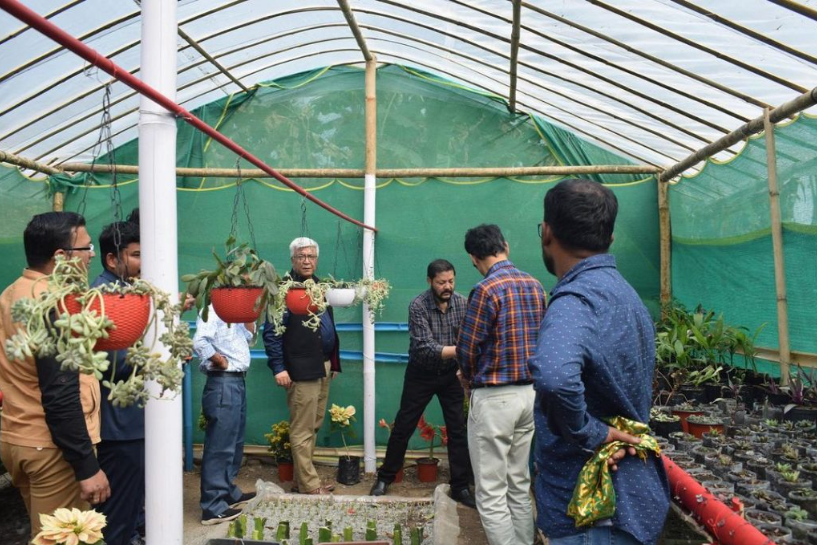
INTERVIEW
He proposes that you prepare for the interview by learning about yourself and your background. It will be based on the DAF and current events. There will be forest-related questions, as well.
Talking about his own interview, he shared that he was asked questions concerning agriculture and public administration. He was also questioned on Kerala’s political situation.
FUTURE TARGETS
He is planning to start a community-based initiative in Buxa. There are a lot of problems with elephant confrontation in Buxa. In some areas, people have even given up farming.
As a result, he intends to introduce farmers to crops that elephants do not consume, such as ginger and turmeric. He went on to say that we will later form partnerships with farmers to brand and market their products.
He said, “There are many schemes of the government. But they are unable to reach the common people properly on the ground. Also, there are very few community-work-oriented schemes. That’s why people are not able to achieve sustainability in the long term. Most of the time, one just completes the target and then leaves it, but handholding is needed. The schemes should be monitored for at least 2 years. This can be done in a better way under SHGs and cooperatives.”
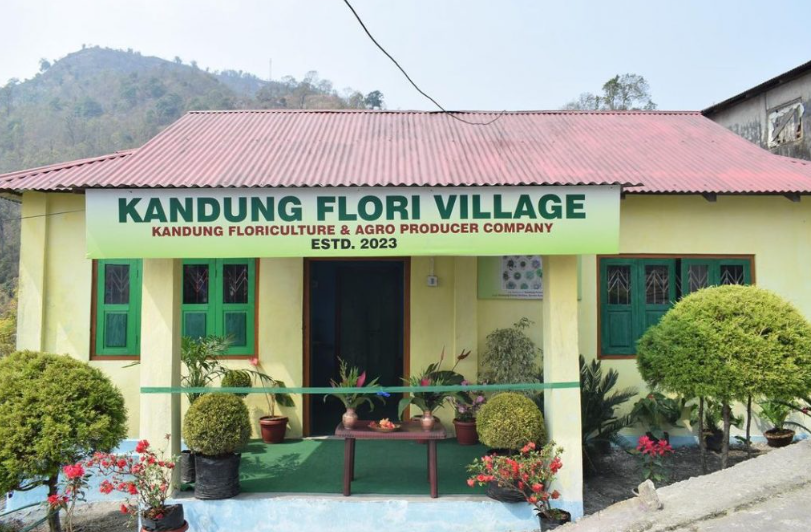
Article Credit: indianmasterminds